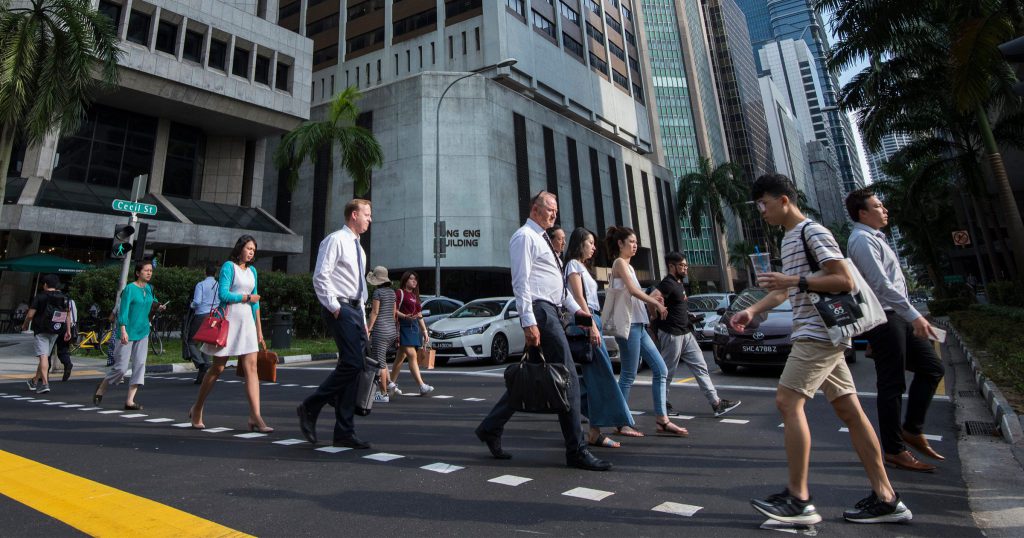According to the results of MOE’s annual joint graduate employment survey, fresh graduates earned an average of $3,500 in 2018.
This is an increase from $3,400 in 2017, and $3,300 in 2016.
Despite these findings, three Singaporeans we spoke to said that the starting pay for their first jobs was quite low, well below the $3,000 range.
Indeed, factors like educational background, relevant experience and valuable skill sets play a part in the pay rate; so how has their salary progressed over the years?
Abby Lee, 27, Writer
Q: What was your first full-time job, and how much did you earn back then?
My first full-time job was a marketing role, where I managed the social platforms for my then-company. My starting pay was between $2,500 and $3,000 — I thought that was reasonable for a fresh graduate from a private university.
I actually negotiated for a slightly higher pay, but I remember clearly what my then-employer said to me: “You’re just a fresh graduate and this is the market rate.”
Q: How long did it take for you to get your first pay raise?
I received my first pay increment after my first appraisal, which took place after my one-year tenure. It wasn’t a huge increase though, only $50! And needless to say, my pay raise didn’t come with any promotion.
Q: Fast forward five years in the working world, have you seen a significant salary increment?
I’ve since moved on to a new company, albeit still in the media industry. I’ve been working here for over 1.5 years and I haven’t seen any salary adjustments (yet). I’m still offered my starting pay — same as previous job — with the promise of good employee benefits and a vibrant working environment.
I definitely think it’s time for me to get a pay raise (my boss reasoned that I have yet to serve a year in the company during the last annual performance review). While my current pay is enough for me to get by, it doesn’t leave me with much savings or room to splurge.
That said, I don’t think salary is everything if the job comes with great employee benefits and a supportive working environment.
Muhammad Amsyar, 32, Art Director
Q: What was your first full-time job and how much did you earn back then?
I was working as a graphics designer for an events company. I was 25 then, and was paid $2,000-$2,200. It was a reasonable figure to me back then since my peers were also earning around the same salary range, so I didn’t bother negotiating with my former boss.
Q: How long did it take for you to get your first pay raise?
I worked in my first company for almost two years, and later moved on to another company (a design studio).
I was offered $2,500-$2,800, and after working there for 1.5 years, I was awarded a pay raise when I got promoted from senior graphic designer to art director.
Q: Fast forward five years in the working world, have you seen a significant salary increment?
Throughout my working years, I’ve enjoyed two pay raises — one from switching company, and another from promotion. My salary increased around $600 to $800 each time.
I’m now working in my third company and am happy with my current salary, though I expect a pay raise in the next one or two years. As an employee, I feel that as long as I make significant contributions to the company and consistently produce good work, I deserve a pay raise.
Sunita Rai, 40, Business Development Manager
Q: What was your first full-time job and how much did you earn back then?
My first full-time job is totally unrelated to my business degree, I was a stewardess! I was young and the idea of traveling for free was what baited me to the job. Pay was also good — definitely more than what my fresh grad peers was earning — and I received travel expenses too. Employment benefits in general was satisfactory.
Q: How long did it take for you to get your first pay raise?
For the airline that I worked for, cabin crews can only apply for promotion after a minimum of three years of service to be awarded a pay raise. Upon application, you will be subjected to go for interviews and tests to assess your skills and knowledge. Your performance will also be duly reviewed.
In general, it is a very cumbersome process so I never bothered to apply for a promotion and quit in my fourth year.
I’m currently working in the manufacturing industry (I started off with a paycut because of my lack of relevant working experience). I received my first pay raise during the yearly review, which is in line with the market rate.
Q: Fast forward five years in the working world, have you seen a significant salary increment?
From an entry-level position, I’ve worked my way up to a managerial role in my company. It’s been eight years, and I’ve definitely seen a significant salary increment thanks to the promotions.
I now earn above $4,000, which I believe is the benchmark for my role. As long as my salary is in line with the market rate, and matches my contributions and accomplishments, I have no complaints about it.
When Should You Get A Pay Raise?
Raises are not guaranteed. Just doing your job will get you a paycheck, but not necessarily an increase.
There are some companies that are proactive with salary increases and regularly review employee performance at six- or twelve-month intervals, adjusting the salary accordingly.
On the other hand, there are also companies that will only grant a pay raise upon request by the employees. However, do note that you should generally not ask for a raise until you have worked in a position for a full year.
While most people are uncomfortable discussing money matters with anyone, it’s important to understand that negotiating a pay raise with your boss is completely normal. If you don’t know how to go about doing it, read this guide to learn how to best ask your boss for a pay raise.
This article first appeared on Workforce Singapore (WSG). Look for your next job here!











